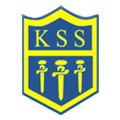Religious Education (RE)
Welcome to KSS Religious Education!
Religious Education - our intent
Through our Religious Education curriculum, we aim to help pupils make sense of religion and belief, reflecting on their own ideas and ways of living. We explore big questions about life, to find out what people believe and what difference it makes to how they live. Children learn to respect other faiths and beliefs, recognising that all people are of equal value. The pupil's own opinions and beliefs are valued and respected, and there are many opportunities to promote their spiritual, moral, social and cultural development. RE encourages self-understanding and helps pupils' self-esteem, reflecting our school vision that they are cherished.
The content of RE is challenging and encourages their mental, cognitive and linguistic development. It particularly supports critical thinking skills, investigation, application and interpretation. RE lessons encourage attitudes of empathy, wonder, open-mindedness, working with others and a sense of community. We want pupils to have the confidence to conduct balanced and informed conversations about RE.
The purpose of RE at Kirkstall St. Stephen's
RE explores big questions about life, to find out what people believe and what difference this makes to how we live. RE helps pupils to make sense of religion and belief, reflecting on their own ideas and ways of living.
We want to enable pupils to hold balanced and informed conversations about religion and belief.
How is RE taught at Kirkstall St. Stephen's?
We follow the aims and objectives set out in the Leeds (Church of England) Diocesan Syllabus. We use Understanding Christianity resources. In most cases, RE is taught in unit blocks across the school.
The syllabus promotes broad and rich learning in RE through three core elements:
Making sense of belief - identifying the core religious and non-religious concepts and beliefs; and understanding what these mean within their traditions.
Understanding the impact - how and why people put their beliefs into action.
Making connections - reflecting on the beliefs and concepts, allowing the ideas to challenge the pupils' thinking and the pupils to challenge the ideas. Also, for them to make connections with their own lives and ways of understanding the world.
What will the children learn:
By the end of EYFS, we aim for all pupils to:
Talk about similarities and differences between themselves and others, amongst families, communities and traditions; begin to know about their own cultures and beliefs and those of other people; explore, observe and find out about places and objects that matter in different cultures and beliefs.
By the end of Year 2, pupils will have:
Studied Christianity and Islam; know about and understand a range of religions and world views; expressed ideas and insights about the nature, significance and impact of religions and world views; gained and deployed the skills needed to engage purposefully with religions and world views.
By the end of Year 6, pupils will have:
Studied Christianity, Islam and Sikhism and some non-religious world views; Continued to develop their knowledge and understanding through their enquiry skills developed in KS1.
Ongoing skills: Critical Thinking, Religious Tolerance, Investigation, Interpretation, Reflexion, Evaluation, Analysis, Synthesis, Application, Expression, Self- Understanding, Communication, Problem Solving.
Developing attitudes: Self-Esteem, Curiosity, Fairness, Respect, Empathy, Wonder, Open-mindedness, Working with others, Sense of Community.
Please see the attached overview document that explains the curriculum and the knowledge, skills and vocabulary progression map from Reception to Year 6.
We have also begun creating Knowledge Organisers (KO) for each half-term and these have been added below. These are child-friendly documents that demonstrate how we will implement the new curriculum, including the powerful knowledge that we wish children to learn after each topic. The impact of our curriculum will be based on how well the children retain this knowledge.
Recent educational visits
Years 3-6 recently enjoyed a trip by train to St. George's Church to watch a performance of the Nativity story called the Christmas Story. Everyone had a great time and enjoyed seeing the story told in a new way.
Year 5 enjoyed a visit from Che Seabourne, one of our parents who is a scientist and a curate, as part of their topic : Are science and religion conflicting or complementary? They asked him some interesting questions! For instance, Who created God? (Macy, Curtis and Lincoln) Why do you think the universe went from a tiny pinhead to this? (Abigail) What was your goal when you were little? (Evan) How do you believe the world was created? (Neethujan)

